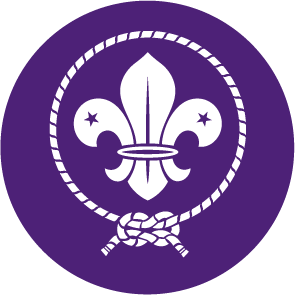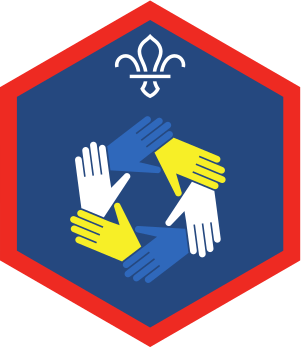Patrol Leaders’ Council
You’ll need
- Pens or pencils
- Sticky notes
- Sticky tack
- Big pieces of paper
What is a Patrol Leaders’ Council?
- Patrol Leaders’ Councils involve Patrol Leaders and the adult leadership team. Sometimes Assistant Patrol Leaders come along too, and if the Troop has Explorer Scout Young Leaders, they should be invited.
- The point of a Patrol Leaders’ Council is to make sure that the adult leadership team hears from young people. Adults and young people should work together to plan and deliver a programme everyone enjoys.
- Patrol Leaders’ Councils also remind everyone of the importance of Patrol Leaders and how they take a leadership role.
- There’s no one right way to run a Patrol Leaders’ Council, but these are our top tips to get your started.
Arrange the Patrol Leaders’ Council
- It’s up to you whether your Patrol Leaders’ Council happens during a normal meeting or another time. It often depends on whether there are enough adult volunteers to run the main meeting while the Patrol Leaders’ Council happens.
- Decide what you’ll cover in the Patrol Leaders’ Council. They can be useful for making decisions about things that have come up during Troop forums (or through general discussion), planning your programme, or planning camps and other activities.
- Try to have a rough plan of what you’ll cover, but keep it flexible and informal. A chat (perhaps with some fun activities to break it up) works better than a long, formal meeting that no one enjoys or wants to go to.
Hear from the whole Troop
- A successful Patrol Leaders’ Council depends on the Patrol Leaders being able to feed back on how everyone else in the Troop feels, and what they think about certain things.
- It’s useful to give Patrol Leaders some time to find out how everyone feels, and what they’d like to pass on.
- The Patrol Leaders might want to run a Troop forum (for example, Cool wall) or adapt another activity like (for example, Just throwing it out there, If you could read my mind, or Badge bucket list), which gives everyone the chance to share their opinion.
- Patrol Leaders could also take some time to talk to their Patrols to find out what they’re thinking. They could even design a feedback form to fill out with their Patrols before the Patrol Leaders’ Council
Come up with ideas
- It’s good to keep track of all the ideas that come out of a meeting. One Patrol Leader could keep some rough notes; another could act as chair, keeping everyone on track and making sure everyone gets time to speak.
- There are lots of ways to come up with ideas. People could write them down on separate sticky notes or make a mind map.
- When people are coming up with ideas, it’s OK to dream big; even if an idea isn’t achievable, it might prompt someone to think of something that could be done.
Make decisions
- Making decision can be tricky, and a Patrol Leaders’ Council can be a great place to learn how to disagree with people, compromise, and find solutions.
- One way to help make a decision is to ask someone to note down ‘pros’ and ‘cons’ of different options. For example, if people are choosing between two different camp venues they might like to consider what makes each one attractive and what it’s drawbacks are.
- Another way to make decisions is voting – people could raise their hands or move to opposite sides of the room. People could also vote privately, for example writing their vote down and putting it in a box.
- Sometimes, the Patrol Leaders may decide that the final decision should go to the whole Troop. They could make a shortlist of options for everyone to choose from and decide how they’ll run the final vote.
Report back
- The outcomes of a Patrol Leaders’ Council shouldn’t be a secret.
- After the meeting, the Patrol Leaders should work together to feedback to the rest of the Troop about the things they discussed, any ideas they’re working on making a reality, and any decisions they made. It’s up to the Patrol Leaders how much detail they give – sometimes it’s useful to explain how and why tricky decisions were made, but it’s not always necessary.
Reflection
This activity helped everyone understand more about what it takes to be a great leader. The Patrol Leaders took on an important leadership role. What did they try to do to be a good leader? Perhaps they made a real effort to hear everyone’s views, put themselves in other people’s shoes to think about what other people would want, or worked hard to make tricky decisions happen. Everyone else can learn lots about leadership by watching their Patrol Leaders. What do people admire about their Patrol Leader and their skills?
Being a Patrol Leader also helps people develop loads of skills. Patrol Leaders listen to others, think about lots of people’s interests and opinions, plan activities, make tricky decisions, and give feedback. When else might these skills be useful? For example, it’s really useful to be able to plan schoolwork, listening and thinking about other people’s points of view is important for building strong friendships, and lots of jobs need people to make tricky decisions.
Safety
All activities must be safely managed. You must complete a thorough risk assessment and take appropriate steps to reduce risk. Use the safety checklist to help you plan and risk assess your activity. Always get approval for the activity, and have suitable supervision and an InTouch process.
There’s no one way to be a good leader. Great leadership often looks different for different people. It’s OK if some Patrol Leaders don’t want to feed back to the whole Troop at once, or if others aren’t so strong at reading and writing. Together, they should support each other to get it all done.
All Scout activities should be inclusive and accessible.
We’ve given you some tips, but the best Patrol Leaders’ Councils are the ones where the Patrol Leaders take charge of the structure and format. They should choose who chairs it and what’s discussed (though the grown ups can make decisions and offer tips).



